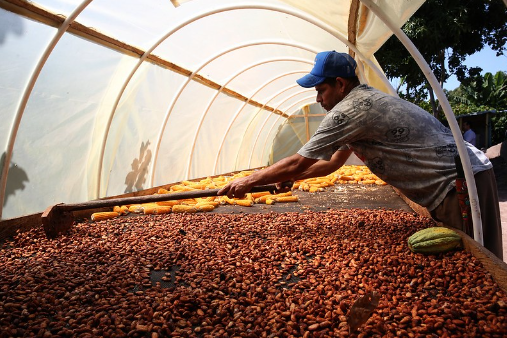BioCarbon Fund Initiative for Sustainable Forest Landscapes (ISFL) Mid-Term Evaluation
The synthesis report for the mid-term evaluation on the BioCarbon Fund Initiative for Sustainable Forest Landscapes (ISFL) is now available for download. This important assessment, conducted by an independent body, is the second of three evaluations to be undertaken over the ISFL program's lifetime.
The evaluation provides in-depth insights into the achievements and challenges of the ISFL program since its inception in 2013. Supported by donor governments from Germany, Norway, Switzerland, the United Kingdom, and the United States, and managed by the World Bank, the ISFL represents a pioneering effort to reduce greenhouse gas emissions by promoting sustainable land use across large jurisdictions in five countries: Colombia, Ethiopia, Indonesia, Mexico, and Zambia.
The evaluation found that ISFL stands out for its innovative use of results-based climate finance and its focus on integrated landscape management (ILM). By aligning with national climate goals and adapting to the evolving global carbon markets, ISFL has effectively contributed to reducing emissions in the Agriculture, Forestry, and Other Land Use (AFOLU) sectors. The evaluation highlights the program’s success in advancing carbon market readiness and fostering sustainable land management practices.
"The ISFL's success in integrating climate finance with sustainable land management practices sets a new standard for global climate action,” said Erwin De Nys, Manager, Climate Finance Mobilization at the World Bank. “We are proud of the progress made and are committed to leveraging these insights to scale up our efforts."
Highlights from the Evaluation
- Significant Contributions to Global Climate Finance: The evaluation found that ISFL’s innovative jurisdictional land use approach alongside the provision of results-based climate finance have already significantly contributed to large scale AFOLU emission reductions.
- Successful Emission Reduction Programs: According to the report, the program has exceeded its targets by promoting sustainable land and forest management on over 12 million hectares.
- Advancing Integrated Landscape Approaches: The evaluation notes that nearly 150,000 people have adopted sustainable land management practices, supported by 28 integrated landscape management reforms across participating countries.
- Enhanced Readiness and Capacity Development: ISFL has made substantial progress in aligning Monitoring, Reporting, Verification (MRV) systems with international standards and building national capacities, despite some challenges in data requirements and system harmonization.
- Effective Private Sector Engagement: The report highlights that through 67 partnerships, ISFL has promoted sustainable agricultural and forestry practices with private sector actors, particularly in Colombia, Ethiopia, and Indonesia.
- Tangible Co-benefits and Sustainability: The evaluation found that the program has led to improved livelihoods, biodiversity conservation, and gender equity. Continued support and strategic partnerships are vital for long-term impacts.
- Replication is Already Occurring: The evaluators report emerging evidence that all five countries are now planning to replicate aspects of the ISFL approach to other large-scale jurisdictions within their countries to build upon the impact of their current programs.
Areas for Improvement and Recommendations
While the evaluation underscores ISFL's successes, it also identifies areas for improvement to enhance the program's effectiveness. One of the key recommendations is to manage program complexity by focusing on activities aligned with country readiness while more effectively addressing readiness gaps, including through continued financing and capacity support. The evaluation also suggests improving the speed of delivery for emission reduction programs, while noting the effort required due to the complexity of AFOLU accounting and measurement.
Another recommendation is to enhance private sector engagement by tailoring strategies to the realities of enterprises on the ground, particularly in landscapes where large-scale enterprises are absent. This involves leveraging the expertise of national and international service providers and ensuring sufficient financial and other incentives for farmers and forest guardians to encourage behavioral change.
The evaluation also highlights the need for enhanced communication and learning strategies. Disseminating ISFL's achievements and lessons more widely can facilitate replication and mobilize additional funding.
Looking Ahead
The evaluation underscores the importance of adopting ISFL’s integrated AFOLU approach in future programs. It recommends focusing on country-specific readiness, capacity building, and financing support while emphasizing cross-sectoral coordination and private sector engagement. Enhanced monitoring, evaluation, and learning (MEL), along with amplified communication efforts, will further improve program design and support replication. In addition, lessons generated by this evaluation will be used to guide the rollout of integrated land use programs within the Scaling Climate Action by Lowering Emissions (SCALE) umbrella trust fund.
“The ISFL's pioneering work in jurisdictional land use and carbon market readiness highlights the power of innovative climate finance solutions. This evaluation confirms the importance of our efforts and guides us toward even greater impact in the future," said Roy Parizat, Fund Manager for ISFL. “The World Bank is committed to continuing its role in providing technical assistance and convening diverse stakeholders to support governments and foster global climate action.”
Download the full evaluation report here or read the 4-page summary here.

